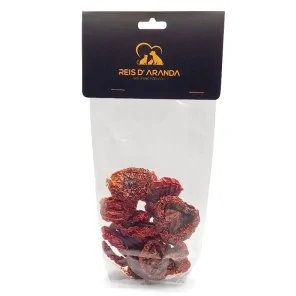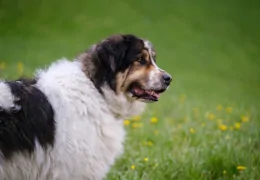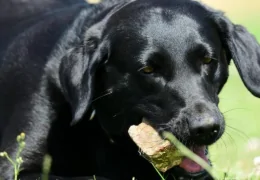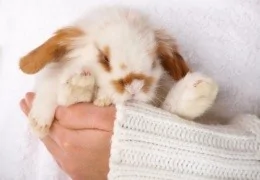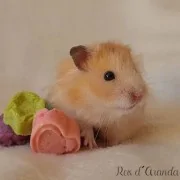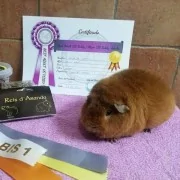The Tornjak originated from genetically homogeneous, almost extinct, indigenous shepherd dogs. These dogs have...
CANCER IN RATS
INTRODUCTION
Rats are nicer and more friendly than people realise (there is a lot of black legend about them, labelling them as dirty and pest carriers) and this makes them excellent pets for people with limited space who want a sociable and fun animal. Rats are super-intelligent, they are very friendly and each one develops its own personality. Unfortunately though, rats have a relatively short life expectancy, and this is often because they tend to develop tumours.
WHY ARE RATS PRONE TO CANCER?
Rats (like mice) are prone to cancer because they have been selected for decades to develop cancer in order to study various veterinary and (mainly) human treatments and cures for the disease. Ethical breeders focused on companionship and showmanship have this same problem as it is ‘written’ into the rat genome, but they strive to find and breed the cleanest bloodlines possible so that their animals' lives will be long and happy.
SYMPTOMS OF CANCER IN RATS
Tumours may range from benign cysts or lipomas of less concern, to cancerous and troublesome malignant tumours. Some of these are not a cause for concern; but most tumours in rats become so large that they need to be removed due to the small size of the animal. These tumours may develop on the rat's skin where they are visible, or internally where they may go unnoticed for some time.
Some of the most common types of tumours in rats are:
- Visible lump
- Difficulty walking or climbing
- Pain
- Signs of tumours in rats
- Bulging eyes
- Mammary tumours
- Increased appetite
- Cancerous tumours
- Lipomas
- Brain tumours
- Signs that a rat has a tumour
- Weight gain
- Cysts
- Ataxia
- Deformed head
Some types of these tumours may be more obvious than others because they grow more quickly and are easier to detect. While other tumours are hidden and may go unnoticed until your rat starts to have trouble moving.
Depending on the location of the tumour, the rat's movement may be affected, which can result in lethargy, a visible lack of appetite or weight gain due to the growing internal tumour. Some tumours may increase the pet's appetite. But a rat that eats a lot of food and gains little or no weight may be experiencing nutritional compensation where nutrient intake is directed towards the growth of that tumour.
Brain tumours in rats often cause neurological symptoms, a misshapen head due to tumour expansion or bulging eyes. Rats with these brain tumours may be ataxic and may have trouble moving or appear unsteady.
HOW TO PREVENT CANCER IN RATS?
The probability that our rat will not develop tumours (benign or malignant) is impossible but we can reduce the chances by acquiring it from an ethical breeder who guarantees the health of his animals (he takes care to look for healthy lines, informs us correctly and gives us a pedigree with all possible ancestors so that we can be informed of the family history). Do not expose your pet to chemical risk situations (clean with products suitable for pets) and offer a varied, nutritious diet, low in fats of poor origin (there are excellent fats that help to improve the skin and coat) will help to prevent the appearance of tumours.
Some veterinary sources recommend neutering to prevent hormonal or sexual tumours, but the vast majority of professionals (ethical breeders, some foreign breeders and micromammal health specialists) do not recommend neutering as the process may be too dangerous for the rat because of the anaesthesia. Virtually all rats that are castrated are castrated during a more serious procedure, so that the anaesthesia is used and not just for a minor operation such as castration, although this is not usual either.
A quality basic food should be made from seeds and grains, not contain treats (sunflower seeds, pumpkin seeds or corn seeds) or strange coloured rings that remind us of breakfast cereals. A good example is Reis d'Aranda's feed for adult rats, which should be combined with vegetables, fresh fruit and a variety of animal proteins (boiled beef, boiled egg or farm-raised insects, dried or fresh), although this brand's basic food contains dried chicken meat in its recipe.
HOW CAN I CARE FOR MY RAT WITH CANCER?
The most important thing is that our rat is comfortable and, as the tumour grows and its health or living condition weakens, we make things as easy as possible for it, such as adapting its cage, giving it soft and comfortable places to sleep or relax, moving it to a place with few stimuli that do not overexcite it, give her the appropriate treatment if the tumour develops ulcers or the hair in the area falls out, and spoil her as much as possible by offering her her favourite treats (at this point, it is better that she enjoys them, in moderation, but we can be a little more lax with her food). Control the temperature to prevent her from getting cold and protect her as much as possible from draughts.
CONCLUSION
Cancer is a very hard disease to which rats are very prone due to their condition as laboratory animals. Ethical breeders make an effort to rid them of this disease, but it is a job that requires many years of effort and that, no matter how much effort is made, it can appear in a particular specimen or bloodline.
It is our duty as owners to learn to recognise the symptoms and act accordingly.
If we see that our rat's day-to-day life is very difficult, it loses a lot of weight, does not want to eat or drink, does not want to move or shows obvious signs of pain, the best thing to do is to put it down to avoid suffering. We are sure that he will be very grateful for the care and affection we have given him in his short or long life, especially when he needed us the most.
Leave a comment
Log in to post comments




